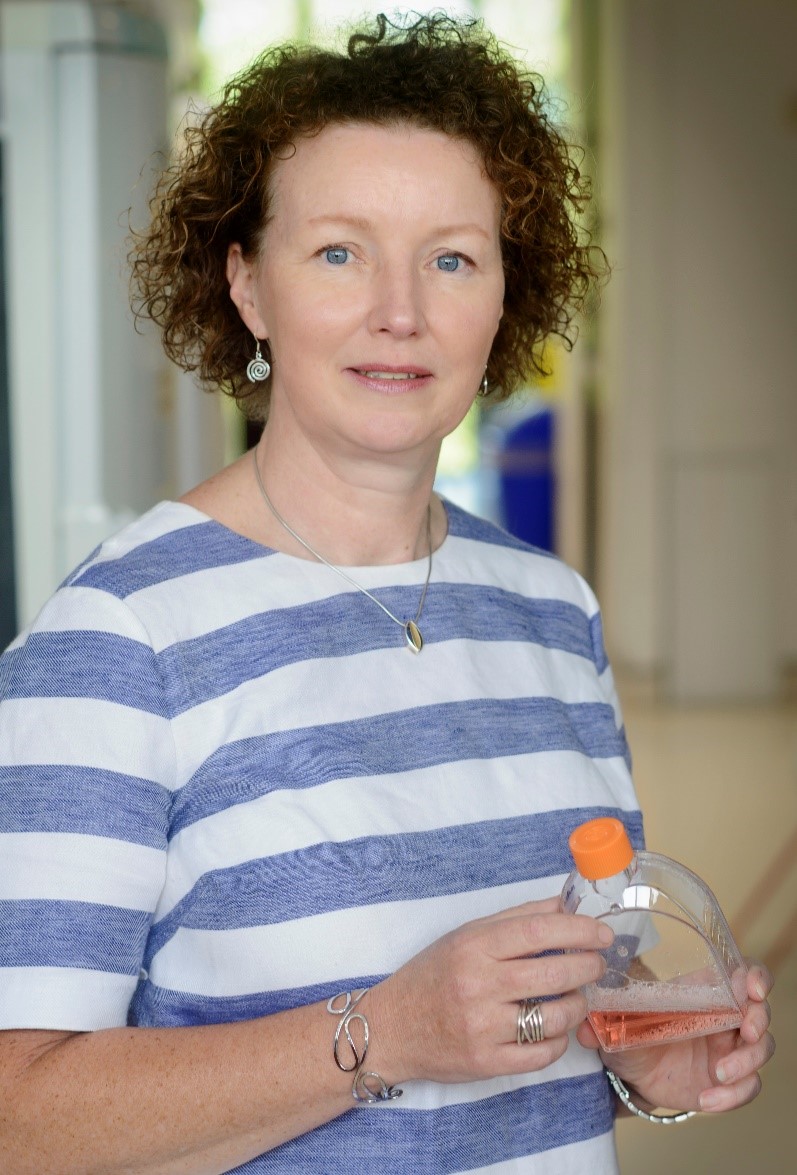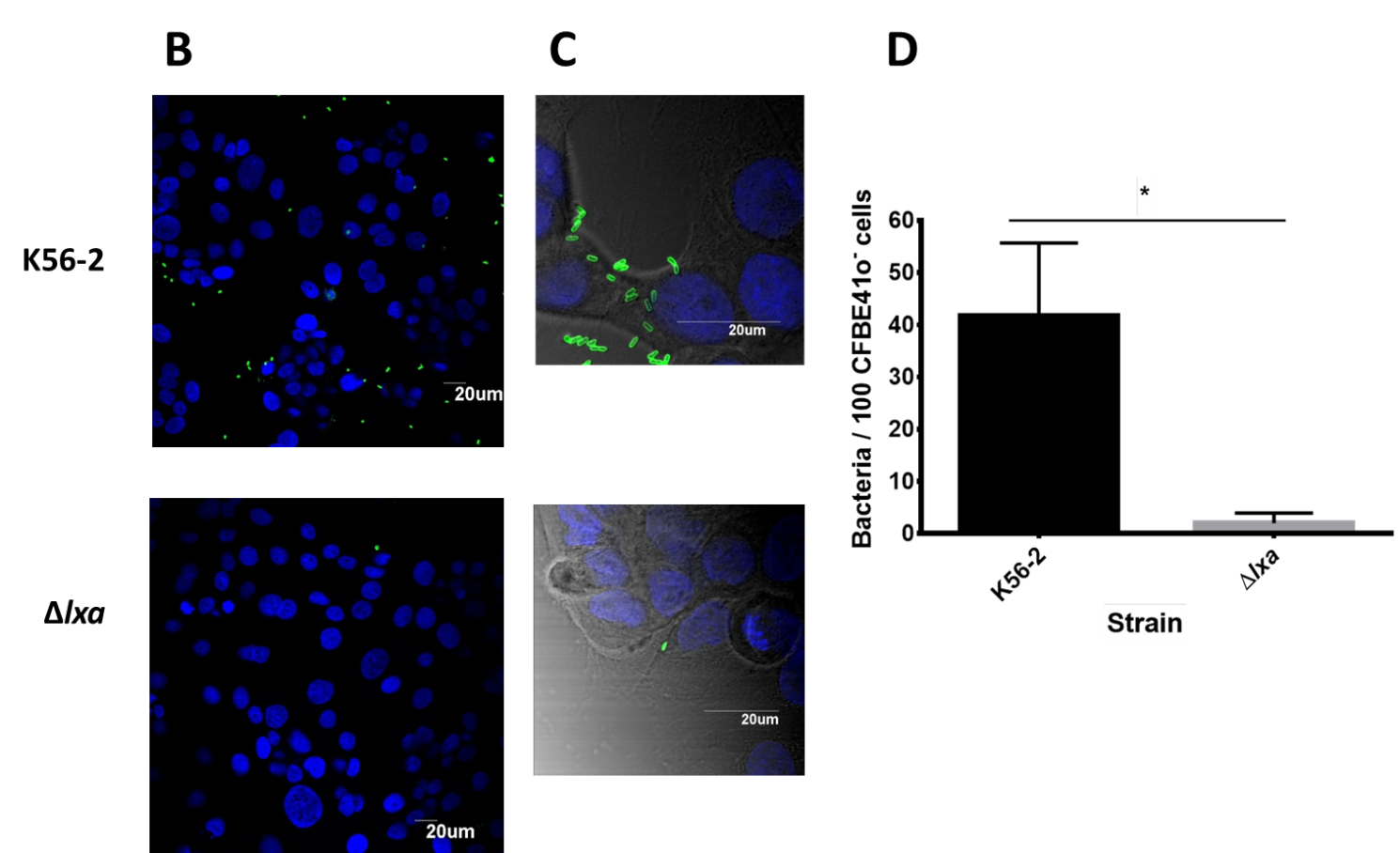 Dr Siobhán McClean, UCD, will be taking part in Soapbox Science Dublin 2019 with the talk: “We need to talk about vaccines – using bacteria’s stickiness to prevent infection”.
Dr Siobhán McClean, UCD, will be taking part in Soapbox Science Dublin 2019 with the talk: “We need to talk about vaccines – using bacteria’s stickiness to prevent infection”.
She completed her BSc in Biochemistry in UCD and received her PhD from Imperial College, London. She started in UCD in 2016. She studies bacteria that cause infections in people with cystic fibrosis. She has a particular interest in understanding how bacteria adapt to the lung environment enabling chronic infections. Her interest in lung infections led her to develop a platform technology to identify proteins that bacteria use to attach to human cells. These proteins have proved to be excellent vaccine candidates. She is now applying the same approach to look for vaccine antigens against other antibiotic resistant bacteria.
Soapbox Science: What attracted you to Soapbox Science in the first place – and what are you most looking forward to/excited about in taking part?
Communication of Science to the public is really important as they are funding scientific research via their taxes. I am really looking forward to taking part in Soapbox Science because it will be a chance to tell people about why vaccines are important and how they save lives every day. There has been a lot of disinformation about vaccines in the past few years. This has had a huge effect on the number of people having vaccines or taking their children to get vaccinated. Unfortunately, this means that there have been outbreaks of vaccine-preventable diseases in Europe and consequently children are dying again from these preventable diseases. This is unacceptable. The more we talk about vaccines the better chance we have of overcoming the disinformation.
SS: Tell us about your career pathway
I went to University College Dublin with an interest in studying Chemistry, but after my second year I decided on to study Biochemistry. When I finished my BSc in Biochemistry, I went to work in Pfizer in Kent, UK in their Drug Metabolism Department. A year later, I got a scholarship to do my PhD at Imperial College London, studying multiple drug resistance mechanisms in cancer cells. I returned to Ireland as a post-doc and worked with a team of researchers looking for new anti-cancer drugs, before taking a research scientist job with a pharmaceutical company, with research labs in Trinity College Dublin, working on drug and vaccine delivery. This research involved studying how drugs and vaccines can pass through the cells of lung and intestines to have their effect. I really enjoyed working on these projects but, ultimately, I left industry with the intention of starting up my own lab in academia, so I took up a lecturing position at the Institute of Technology Tallaght. A colleague and a clinical microbiologist working in a hospital nearby were interested in studying how bacteria cause infections in people with cystic fibrosis. I knew a lot about lung cells by that stage, and although I had never studied bacteria (or any microbiology), the topic really interested me! So I started to investigate how pathogens (i.e. disease causing bacteria) interact with lung cells. We study how bacteria attach to human cells and the damage that bacteria can do. I started small, getting funding for individual PhD and MSc students in the first few years and after building up a profile in the area of host-pathogen interactions, I started to win larger funds. My research in vaccines emerged later, combining what I learned some of what I learned in the pharmaceutical industry with what we have learned in the process of studying host pathogen interactions. I am now an Associate Professor in UCD Conway Institute.
SS: What, or who, inspired you to get a career in science?
I was always fascinated by biomedical science when I was a child, long before I knew what the term meant. We had a series of books at home called “Tell Me Why” which I loved to read, and always turned to the human biology/ human disease sections when I had a quiet moment.
SS: What is the most fascinating aspect of your research/work?
I am fascinated by all the ways that bacteria use to try to outsmart us. They will use whatever is at their disposal to colonise humans. In our lab, we try to exploit these bacterial mechanisms in our hunt for vaccines.
One of the most exciting aspects is when I have a theory about how something might work and after a series of experiments the pieces fall into place and the theory is either proved or, as sometimes happens, another unexpected mechanism emerges. The other really great thing about working is research is that I actually learn something new every single day.
SS: Research in STEM is increasingly multi-disciplinary. Which subjects do you use in your work?
Our research brings in aspects of Biochemistry, Microbiology, Cell Biology and Immunology. My primary BSc degree was in Biochemistry, while my PhD focused on Cell Biology. I learned a lot about vaccines from my time working in the pharmaceutical company so I draw on all my previous experience for my current research, and I have learned lots of Microbiology along the way!
SS: What do you consider important to your work and why did you pick these?
The people that work in my lab are so important to the research that we do. Without them, there would be no research projects. I am privileged to work with very bright, enthusiastic PhD students and researchers.
Another really important element is having the time and space to draw information from lots of different experiments done in the lab and from the work that others have published, to figure out what is going on in a system.
I also enjoy working with undergraduate students and sharing my love of biology with them, either in the lab or in lectures.
SS: If you could change one thing about the scientific culture right now, what would it be?
It is important that scientists are accountable, given the public funding that we receive. However, the increased emphasis on metrics (some of questionable value) has become excessive and is becoming somewhat oppressive. It doesn’t necessarily lead to good science.
SS: What would be your top recommendation to a female student considering pursuing a career in academia?
Science is a great career. Every day is different and I have the privilege of working with really interesting, enthusiastic people including undergraduate students, PhD students, early stage researchers and collaborators. My top recommendation is to find a topic that fascinates you, because if you love studying something, it’s easier to work hard at it and excel.
SS: What words of encouragement would you give to children who might be interested in a career in science
Believe in yourself.

We examine how bacteria attach to human cells so that we can identify potential vaccines.
